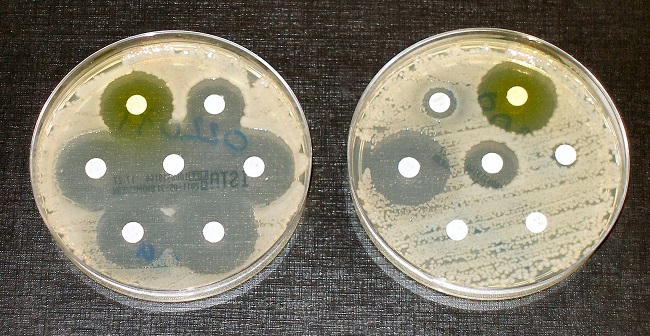A don, Professor Abimbola Owoseni, has said the emergence of new antibiotic-resistant bacteria implicated in foodborne illnesses is causing an increase in treatment failures in Nigeria.
Professor Owoseni, in the 12th inaugural lecture entitled ‘Microorganisms: Invincibility in Invisibility,’ delivered at Bowen University, Iwo, Osun State, said these new antibiotic-resistant bacteria were isolated from cooked street vended food and have become a great public health concern.
Owoseni, the head of the university’s microbiology programme, declared that the presence of these bacteria in street food is of high concern, as it means people are readily exposed to antibiotic-resistant genes in foods consumed regularly.
According to her, there is also a widespread existence of multiple drug-resistant germs that can be transferred to humans from unwholesome water sources, including boreholes and wells, and other sources such as abattoir soil, hostel sewage, poultry soil, cow dung soil and cafeterias.
Also Read: Air Peace announces N1.2m for London economy flight ticket
“More importantly, these antibiotics are the most abundant, easy-to-buy and over-the-counter drugs in the environment. Thus, because of overuse and misuse, most of the organisms in the environment have developed high levels of resistance to antibiotics.
“With the bacteria isolated from the abattoir, the spread of food-borne pathogens and resistant bacterial strains from retail meats within the environment is anticipated. Poultry and retail meats are frequently tainted with gastrointestinal flora; hence, enteric microorganisms are found in the poultry and abattoir environments,” she said.
The don declared that in 2019, in the African region, there were an estimated 1.05 million deaths associated with bacterial antimicrobial resistance and 250,000 deaths attributed to bacterial antimicrobial resistance (AMR), with the largest fatal AMR burden from lower respiratory and thorax infection deaths.
Professor Owoseni, therefore, recommended that to fight microorganisms, antibiotics must be taken as prescribed and not taken for viral infections like colds or catarrh.
She also recommended a reduction in the use of antibiotics in livestock animals, while charging healthcare providers to always run tests to get the drug that fits best before prescriptions are written.
The don stated the need to prevent infections by hand washing with soap and water as very crucial.
She also called for increased funding for research in the basic sciences; funding of research through the Tertiary Education Fund (TETFUND) which should include private universities; and linkage between the university and industry to be maximally explored.
